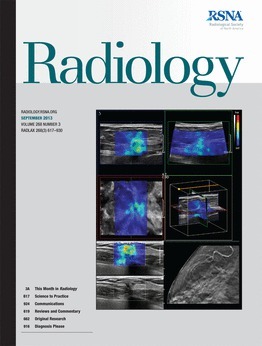by
Nancy Ryerson, Staff Writer | September 10, 2013
Whole-body MRI may be a useful tool for determining heart attack and stroke risk in diabetic patients, a new study published in the journal Radiology found.
Patients with diabetes have an increased risk of heart attack and stroke because they are a prone to developing a thickening of the arterial walls at an accelerated rate. Whole-body MRI can reveal arterial thickening as well as risk factors in other parts of the body, the study found.
Researchers looked at the predictive value of whole-body MRI for 65 diabetes patients. After an average of 5.8 years, the researchers collected follow-up information and found that patients who had detectable vascular changes on whole-body MRI faced a cumulative risk of 20 percent at three years, and 35 percent at six years of experiencing stroke or heart attack. Fourteen patients in total had a major adverse cardiac or cerebrovascular event in that time frame. None of the patients with clear MRI scans experienced an event in that time frame.



Ad Statistics
Times Displayed: 45742
Times Visited: 1370 MIT labs, experts in Multi-Vendor component level repair of: MRI Coils, RF amplifiers, Gradient Amplifiers Contrast Media Injectors. System repairs, sub-assembly repairs, component level repairs, refurbish/calibrate. info@mitlabsusa.com/+1 (305) 470-8013
The whole-body approach allows risk to be measured in the brain as well as the heart and vascular system. This is the first time MRI has been used in diabetes patients to determine stroke and other complications in addition to just heart attack.
"Given that diabetes is a systemic disease affecting all vascular beds, such a whole-body approach more accurately assesses the burden of disease," lead researcher Fabian Bamberg told DOTmed News. "This is in contrast to a number of established risk assessment tools such as coronary calcium scanning or myocardial perfusion imaging, which exclusively focus on the heart."
For example, if there is an above-average presence of white matter lesions in the brain, that could indicate a prior small stroke that the patient may not have been aware of.
The treatment also has the benefit of being non-invasive and providing no radiation.
Diabetes patients who have had the disease for more than 10 years are good candidates for the scans, though the use of full-body MRI for diabetes needs more research, Bamberg said. Currently, he and other researchers are currently replicating the findings in larger patient groups.

